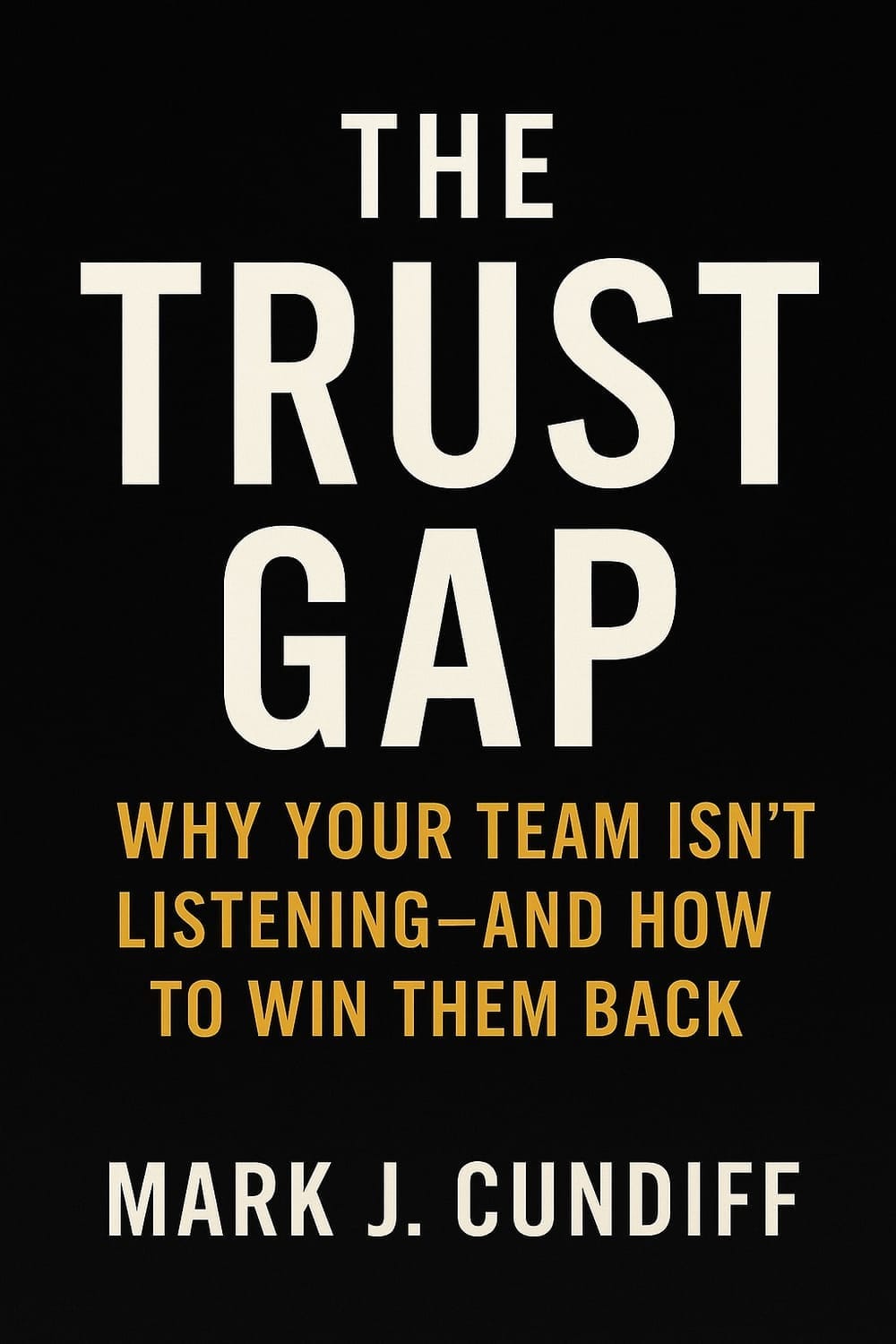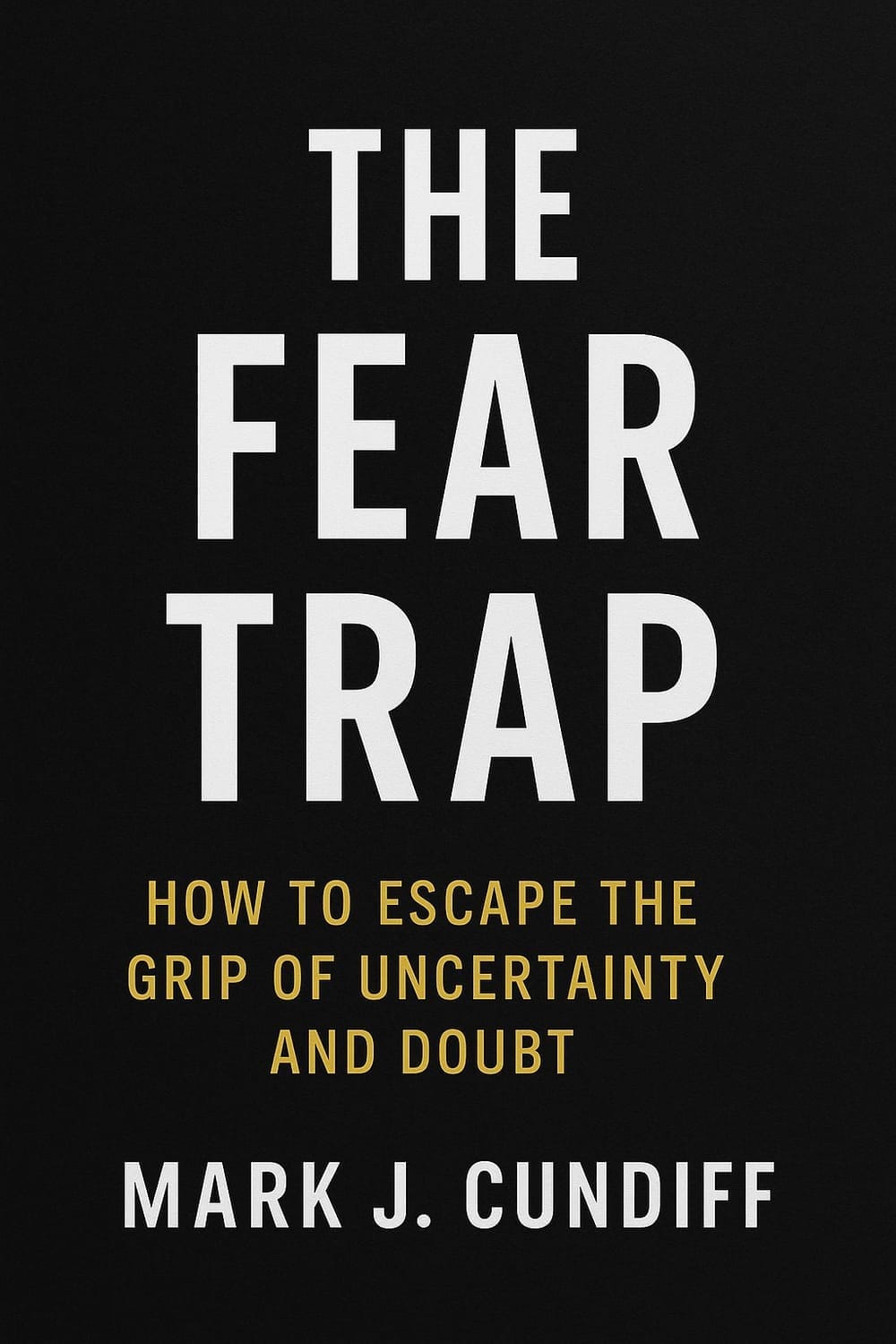The Science of Sustainable High Performance: Why Working Harder Isn't the Answer - James Hewitt - Global Leadership Summit 2025
Are you tired of the hustle culture that promises success through endless grinding?
What if I told you there's a better way, one backed by science and proven by some of the world's top performers?
I recently discovered the work of James Hewitt, a human performance scientist who's cracked the code on something we all desperately need: sustainable high performance.
He spoke at this year's Global Leadership Summit, sharing some great insights that opened my eyes to some interesting myths we believe about hustle. As someone who's spent years studying what separates good leaders from great ones, Hewitt's research challenged my thinking.
Here's what caught my attention: Hewitt isn't just another academic theorist. He's a former full-time racing cyclist who combined his real-world experience with cutting-edge research in neuroscience, physiology, and psychology.
The result? A framework called Regenerative Performance that's changing how top businesses think about productivity and well-being.
The Problem We're All Facing
Let's be honest—most of us are running on empty. We've bought into the myth that more hours equal better results. We check emails at midnight, skip breaks, and wear our exhaustion like a badge of honor. But here's the uncomfortable truth: this approach is killing our performance, not enhancing it.
Hewitt's research reveals what many of us already know deep down: burnout isn't just a personal problem, it's a business crisis. When we sacrifice our well-being for short-term gains, we actually reduce our capacity for the kind of focused, creative work that drives real results.
Enter Regenerative Performance
What if instead of depleting our energy, we could actually build it? That's the core idea behind regenerative performance—a science-based approach that helps you build capacity, enhance focus, boost resilience, and deliver measurable business results without burnout.
The secret lies in understanding something Hewitt calls Cognitive Gears. Just like a cyclist shifts gears based on terrain, we need to shift our mental gears based on the demands of our work.
The Three Cognitive Gears That Will Transform Your Performance
High Gear: Your Peak Performance Zone
This is where the magic happens. High gear is a deliberate focus on efficient, impactful, priority-driven work.
Think of those moments when you're completely absorbed in solving a complex problem or crafting a strategic plan. This is your most valuable cognitive real estate—and it should be protected at all costs.
The question every leader should ask:
What work truly requires my high gear, and how can I create the conditions to access it consistently?
Middle Gear: The Switching Zone
Middle gear is your transition space—handling emails, attending meetings, and managing less complex tasks.
This isn't busy work; it's the necessary connective tissue of leadership. But here's the key: middle gear work should never masquerade as high gear work.
Low Gear: The Recovery Foundation
Here's where most high achievers get it wrong. Low gear isn't laziness—it's strategic recovery. This is rest, low-level activity, and the space where your brain processes, consolidates, and prepares for the next high gear session.
The breakthrough insight: Rest isn't the absence of productivity; it's the foundation that makes peak productivity possible.
A Practical Tool: Taming Your Email Inbox
Let's get practical. Email is the perfect example of middle gear work that too often hijacks our high gear capacity. Hewitt offers three game-changing strategies:
Rethink your promises to respond rapidly – That instant response isn't impressive; it's destructive to deep work.
Batch email use to specific parts of the day – Choose your middle gear windows and stick to them.
Reset expectations with email signatures – Manage others' expectations about response times proactively.
These aren't just productivity hacks—they're boundary-setting strategies that protect your most valuable cognitive resources.
Know Your Natural Rhythm
Here's something fascinating from Hewitt's research: your chronotype (whether you're an early bird or night owl) significantly impacts when you should tackle different types of work.
Early Birds experience: Peak → Valley → Rebound throughout the day
Night Owls experience: Rebound → Valley → Peak throughout the day
This isn't just interesting—it's actionable.
When are you naturally in high gear?
Schedule your most important work during these windows. Use your valleys for low gear recovery, not forcing high gear performance.
The Leadership Lesson
As leaders, we have a responsibility that goes beyond our own performance. We're modeling what sustainable success looks like for our teams.
When we embrace regenerative performance, we give our people permission to work smarter, not just harder.
The hard truth: If you're burning out, you're not demonstrating strength—you're demonstrating poor resource management.
Your Next Steps
The science is clear, but science without application is just interesting information. Here's how to start implementing regenerative performance this week:
Audit your cognitive gears – Track when you're operating in high, middle, and low gear for three days.
Protect your peak windows – Block calendar time for high gear work during your natural peak hours.
Implement the email batching strategy - Choose two specific times per day to process email.
Design intentional recovery – Schedule low gear time like you would any other important meeting.
Remember, this isn't about working less—it's about working regeneratively. It's about building a performance system that gets stronger over time rather than one that gradually depletes you.
The best part? When you model regenerative performance, you don't just transform your own results—you create a culture where sustainable high performance becomes the norm, not the exception.
The Foundation of Everything: Sleep as Strategic Investment
Let's talk about the elephant in the room—the one thing that impacts every gear shift, every decision, and every moment of leadership: sleep.
Here's a statistic that should wake us up: 45% of inadequate sleepers get less than 6 hours of sleep, which drops productivity by 15%. But the impact goes far deeper than personal productivity.
Sleep-deprived leaders create less psychologically safe environments for their teams.
Think about that for a moment. When you shortchange your sleep, you're not just hurting your own performance—you're diminishing your ability to create the kind of environment where others can thrive.
Hewitt puts it perfectly: "Sleep is not lost time. It is a strategic investment in everything we care about being awake for."
The Sleep Success Formula
If you want to master regenerative performance, you must master these sleep fundamentals:
Consistency is key – Your brain craves rhythm. Same bedtime, same wake time, even on weekends.
Darkness is your friend – Create a cave-like environment that signals to your body it's time to recover.
Cut off coffee at midday – That afternoon caffeine hit is stealing your evening recovery.
Think in ink – Get tomorrow's thoughts out of your head and onto paper before bed.
Here's your sleep reality check:
Can you sleep and wake up without an alarm?
Can you stay awake during the day without struggling?
If not, you're operating with a fundamental handicap that no productivity hack can overcome.
The Focus Revolution: From Multitasking to Single-Tasking
Now let's address one of the biggest myths in modern work culture: multitasking. Here's the uncomfortable truth—for the vast majority of us, multitasking is essentially "screwing up simultaneously."
Research shows it slashes productivity by 40%.
The path forward is deceptively simple: Feed your focus, starve your distractions.
This means making a fundamental shift from multitasking to single-tasking. When you're in high gear, you're doing one thing with complete attention.
When you're in middle gear, you're consciously choosing to switch between tasks. When you're in low gear, you're doing one thing: recovering.
The Break Breakthrough
Here's something that might challenge your work ethic: breaks aren't weakness—they're performance enhancement tools. We need to normalize taking breaks during our workday, whether it's 5 minutes or 15 minutes.
Most leaders are trapped in what Hewitt calls "middle gear purgatory"—constantly switching between tasks without real focus or real rest. You're neither achieving peak performance nor giving your brain the recovery it needs to sustain high performance.
The breakthrough insight: Proactive breaks aren't time lost—they're capacity built.
Building Your High Gear Focus System
To truly enhance your focus in high gear, consider these three dimensions:
When you work – Align your most important work with your natural peak hours.
What you work on – Ruthlessly prioritize the work that only you can do at your highest level.
How you work – Create environments and systems that support sustained attention.
The Regenerative Performance Equation
Here's the formula that changes everything: Effort + Recovery = Regenerative Performance
This isn't addition—it's multiplication Without adequate recovery, your effort becomes increasingly inefficient.
Without meaningful effort, your recovery lacks purpose. But when you combine intentional effort with strategic recovery, you create a performance system that actually gets stronger over time.
Your Implementation Plan
The science is compelling, but transformation happens in the implementation. Here's your regenerative performance action plan:
This Week:
Switch from multitasking to single-tasking – Choose one task, complete it, then move to the next.
Implement the coffee cutoff – No caffeine after midday for seven days.
Schedule proactive breaks – Set three 10-minute break reminders in your calendar.
This Month:
Establish sleep consistency – Same bedtime and wake time for 30 days.
Create darkness protocols – Invest in blackout curtains or an eye mask.
Practice "think in ink" – End each day by writing tomorrow's priorities.
The Leadership Ripple Effect
Remember, your sleep quality doesn't just affect your performance—it affects your team's psychological safety. Your focus habits don't just impact your results—they model what's possible for everyone around you.
When you embrace regenerative performance, you're not just optimizing your own capacity—you're creating permission for your entire organization to work sustainably and effectively.
Your well-being isn't separate from your success—it's the foundation that makes sustainable success possible.
The question isn't whether you can afford to invest in regenerative performance.
The question is: can you afford not to?
What's the first change you'll make this week to shift from depleting performance to regenerative performance?
Would you like to dive deeper into Dr. James Hewitt's work, pick up his book, Regenerative Performance!
The Complete Global Leadership Summit Article Index
John Maxwell: The Legacy You Leave
Craig Groeschell: Leadership Consistency: The Boring Secret to Long-Term Success
Erica Dhawan: The New Leadership Advantage: Connectional Intelligence
Thasunda Brown Duckett: From Love and Faith to Leading a Trillion-Dollar Portfolio
Christine Cane: Don't Drift: Three Questions Every Leader Must Answer
Juliet Funt: The Power of Precision: Choosing Great Over Good
Join over 3,900 Fellow Leaders reading The Learning To Lead Newsletter each week!
Recent Articles

Join over 4,000 Fellow Leaders reading The Learning To Lead Newsletter each week!
©2025 Learning To Lead | Helping Good Leaders Become Great Leaders


